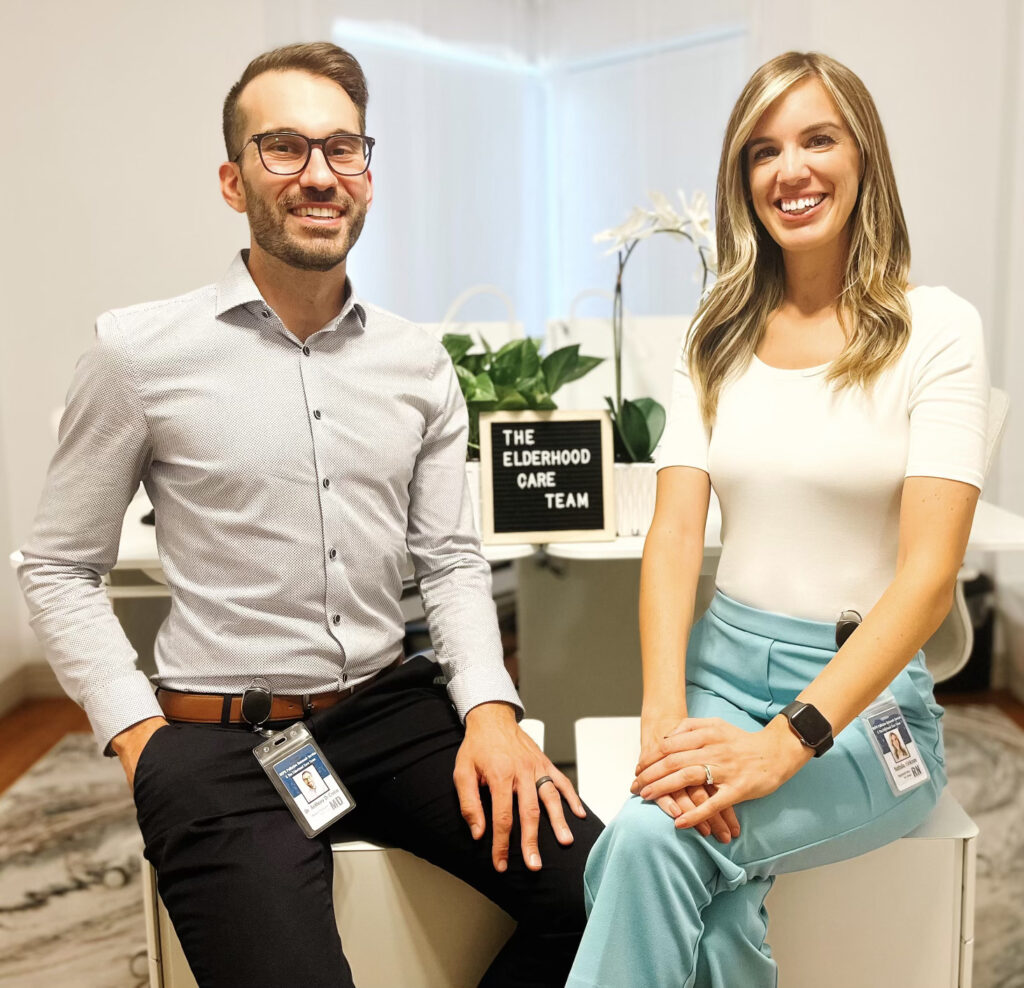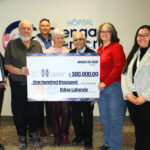
Anyone who knows me will know that I am from England and in England doctors always made house-calls. So when I moved to Canada I was quite surprised to find out that when you get sick you have to leave your house and venture out to a clinic or the hospital Emergency Department to be seen by a doctor.
However in the past few months I discovered, through Chateau Cornwall, that we do have a Doctor who takes care of patients 80 and over and does house-calls. This doctor is part of The Elderhood Care Team and his name is Dr. Anthony Di Cintio. I am happy to say that my mother was able to become one of his patients and I was able to attend one of the house-calls that he made at my mother’s house. Such a caring personality, Dr. Di Cintio took time to listen to my mother’s questions and answer them in a compassionate way. I am happy that The Seeker was able to interview Dr. Di Cintio and co-founder of The Elderhood Care Team, nurse Natalie Hickman, and introduce them to our community.
Here are some questions that I asked him.
What inspired you to start a practice that specifically caters to the elderly over the age of 80? Can you share some of the unique healthcare challenges facing the elderly population today?
It’s been said that “Elders are the axis mundi of our mutual life”. As medical practitioners, this resonates deeply because for us, how we care for our elders is a testament of how we care for the rest of the population, even our own families. Unfortunately, elders are often misunderstood and overlooked. They are often met with apathy as opposed to concern and compassion because it’s easier to forget the person that once was and just see the age or the illness. We felt like it was time for a change in perspective.
Additionally, it became hard to ignore the blaring reality that the quality of care available to elders in comparison to the rest of the population is substandard. Nearly 65% of the Cornwall community is without primary care access, a majority of whom are elders.
There is a significant lack of understanding around the care of elders and how unique it is in comparison to the medical care of your average adult. Elder care must be treated with a lot more consideration in mind because often they face health challenges that extend beyond typical medical issues like social isolation, cognitive decline, mobility issues, technological barriers and caregiver strain. Understanding these issues and finding ways to alleviate them for the elder patient became our mission.
What are the advantages of home-based healthcare for older adults compared to traditional office visits?
From the earliest days of professional medicine, a doctor had to be sent for. If a patient was too ill to walk or had no transportation, the doctor would make a house-call. Nowadays, this ancient practice has practically ceased to exist. We’ve centralized medical treatments to hospitals, clinics and long-term care facilities. But when we think of our elders and the limitations they face, we realize if we don’t go to them, will they even come to us? We knew it was time to break out of that mould of how we serve patients in the 21st century, go back to basics and reinstate the house- call.
It wasn’t long before we realized that understanding a patient’s environment, social support system and daily life is imperative to their care, especially that of elders. It enables personalized care based on their specific needs and challenges. It allows for a proper assessment of home safety, nutrition, and mental health. It helps build better rapport with the patient and their family and is ultimately safer and more cost-efficient for the patient. All of this simply can’t be achieved in an office.
What are the primary goals of your practice in providing healthcare to older adults at home?
Our main goal is to improve the quality of life of our elder patients. We do this by providing the necessary medical care, support and resources they need to feel empowered to make informed health care decisions, all in the comfort of their home. This has proven to prevent unnecessary hospitalizations, emergency room visits and premature placement to long-term care facilities.
A secondary goal is to have a more collaborative care approach, one that involves the family or caregiver in the care plan. A common issue that goes undetected in elder care is caregiver fatigue – and so part of this goal is to provide resources to ensure our elder patients and their surrounding caregivers have the utmost support. We do what we can to serve everyone in the room because we understand that it takes a village.
Lastly, our home-care based approach has proven to be the most effective way to build a strong patient/care provider relationship, one based on mutual respect, compassion and understanding – which for us, is the ultimate goal.
Could you share some examples of how you’ve seen your services positively impact the lives of older patients?
We have met countless elder patients, in varying states of health, and the most recurring sentiment we receive is disbelief. Patients can’t believe that we are in their homes, talking to them across their kitchen tables, discussing ways to not just understand their pain but improve it, not just assess their alertness but deprescribe medications that could be worsening it. We don’t just treat our elder patients, we see them, we take the time to understand them, learn who they once were, and who they are now. Medicine is all about the human condition – so why not start there.
Who is the Elderhood Care Team and how to join?
We are a fully OHIP-covered, mobile, full-time, house-call service for patients ages 80 and above living between Cornwall and Bainsville. We hope to grow our service to other surrounding areas in the future. We prioritize elders without a primary care provider.
For more information on our service, please call 343-585-1194.









